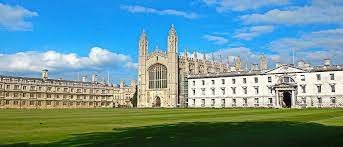Singapore is home to some of the best educational institutions in the world, with many universities that offer master’s degree programs. For students who have a Higher National Diploma (HND), there are a number of schools and universities that accept this qualification for admission into their master’s programs.
Let’s set the record straight on what schools and universities in Singapore accept Higher National Diploma (HND) certificates, second class, and third class degrees for Master’s degree programs. In this blog post, we’ll explore the different opportunities available to students with these qualifications, so that they can make an informed decision about their education. With so many options available, it’s important to understand the different requirements and benefits of each school and university.
Eligibility Criteria for Master’s Degree Programs in Singapore
These standards can vary by institution and program but provide a foundational guideline for prospective students with Higher National Diploma (HND) certificates, second class, and third class undergraduate degrees. Here’s a comprehensive breakdown of the general eligibility criteria:
- Academic Qualifications: Applicants must hold an undergraduate degree or its equivalent. For those with HND certificates or second and third class degrees, specific universities may require additional postgraduate diplomas or professional experience to bridge academic gaps.
- Work Experience: Certain programs, particularly MBA and specialized Master’s degrees, value relevant work experience. Applicants may need to demonstrate professional experience in their field, ranging from one to five years, depending on the program’s competitiveness and requirements.
- Language Proficiency: As English is the medium of instruction in Singaporean universities, non-native speakers must prove their proficiency through standardized tests like IELTS (minimum score usually around 6.5 to 7.0) or TOEFL (minimum score about 90-100 internet-based test). Some programs might accept alternative qualifications or tests, so checking specific university requirements is advisable.
- Letters of Recommendation: Most Master’s programs require two to three letters of recommendation from academic or professional referees. These letters should attest to the applicant’s academic abilities, character, and potential for success in graduate studies.
Applicants are encouraged to review the specific eligibility criteria and admissions requirements of their chosen universities and programs in Singapore, as these can vary significantly. Adhering closely to these guidelines and adequately preparing application materials can enhance the chances of admission into desired Master’s programs, even for those with HND certificates or lower class undergraduate degrees.
Universities in Singapore that Accept HND Holders for Masters Programs
Singapore has become a hub for educational excellence, offering a myriad of opportunities for students from diverse academic backgrounds to pursue their Master’s degrees. For holders of Higher National Diploma (HND) certificates, the path to postgraduate education in Singapore is facilitated by several universities that recognize the value and potential of these qualifications. The following is a list of Singaporean universities that welcome applications from HND holders for their Master’s programs, each with its specific set of criteria and pathways to accommodate such students:
1) National University of Singapore (NUS)
Known for its high-ranking global position, NUS offers several Master’s programs that are accessible to HND holders, especially those who have supplemented their HND qualifications with relevant professional experience or additional academic credentials. NUS emphasizes a holistic review process, considering various factors beyond academic qualifications.
2) Nanyang Technological University (NTU)
NTU is another globally recognized institution that provides opportunities for HND holders to pursue Master’s degrees. The university values the practical knowledge and skills that HND graduates bring to their programs and offers bridging courses for select programs to help these students meet the required academic standards.
3) Singapore Management University (SMU)
SMU is well-known for its business and management programs but also offers a wide range of Master’s degrees in other disciplines. HND holders may be considered for admission into SMU’s postgraduate programs if they possess significant professional experience and demonstrate strong leadership potential.
4) Singapore University of Technology and Design (SUTD)
For HND holders looking to further their education in technology and design, SUTD provides a conducive learning environment that emphasizes innovation and practical application. The university offers tailored admissions criteria for students with diverse educational backgrounds, including those with HND qualifications.
5) Singapore Institute of Management (SIM)
SIM is recognized for its inclusive educational approach and offers various Master’s programs that cater to HND holders. The institute focuses on professional development and real-world application, making it an ideal choice for HND graduates seeking to advance their careers.
These universities represent the diverse and inclusive higher education landscape in Singapore, offering pathways for HND holders to pursue advanced degrees. Prospective students should carefully review each university’s specific admissions criteria and available support services, such as bridging programs and academic advising, to ensure a smooth transition into their desired Master’s programs.
Schools in Singapore that Accept HND Holders for Masters Programs
In Singapore, there are a number of schools that accept HND (Higher National Diploma) holders for admission into their master’s degree programs. These include the National University of Singapore (NUS), the Singapore Management University (SMU), and Nanyang Technological University (NTU). NUS is considered to be one of the top universities in Asia, and it offers a wide range of master’s degree programs, from engineering to business and management. SMU is a leading business school in Singapore, offering specialized master’s degrees in areas such as finance, marketing, and human resources.
1) James Cook University Singapore (JCUS)
As part of the global network of James Cook University campuses, JCUS offers Master’s programs that cater to the holistic development of students, including those with HND qualifications. Their programs are designed to bridge academic gaps and focus on providing a global perspective in various fields of study.
2) Kaplan Singapore
Known for its flexible learning pathways, Kaplan Singapore collaborates with reputable universities around the world to offer Master’s degree programs suitable for HND holders. The institution is particularly recognized for its business and IT programs, providing career-oriented education that emphasizes practical skills.
3) PSB Academy
With a strong emphasis on applied learning, PSB Academy offers several Master’s degree programs in partnership with renowned international universities. These programs are structured to accommodate students with HND certificates, focusing on enhancing their theoretical knowledge and practical expertise in their chosen fields.
4) Management Development Institute of Singapore (MDIS)
MDIS offers a broad spectrum of Master’s degree programs in collaboration with esteemed international universities. The institution values the diverse educational backgrounds of its students and provides HND holders with opportunities to pursue advanced studies in areas like business management, engineering, and health sciences.
5) Curtin Singapore
Curtin Singapore is a branch of Curtin University, an Australian university that is ranked in the top 1% of universities worldwide. The school offers a number of postgraduate programs that are suitable for HND holders, including master’s degrees in business, education, and science. These programs are designed to help students develop the skills and knowledge they need to succeed in their chosen field. Curtin Singapore is also known for its international student body, which comes from more than 60 countries.
These schools in Singapore have created accessible pathways for HND holders to pursue their Master’s degree aspirations. They offer a range of programs across different disciplines, each designed with specific admission criteria and support systems to facilitate a seamless transition for students. Prospective applicants are encouraged to directly contact these institutions for detailed information on eligibility, application procedures, and the availability of bridging courses or preparatory programs tailored to their unique educational backgrounds.
FAQS
What are the requirements for Master’s programs in Singapore?
Master’s programs in Singapore vary in requirements, but here’s a general overview:
- Bachelor’s degree: Most programs require a recognized Bachelor’s degree in a relevant field.
- Minimum GPA: The minimum GPA typically ranges from 2.5 to 3.5 on a 4.0 scale, but individual programs set their own standards.
- Standardized tests: Some programs require GMAT, GRE, or IELTS/TOEFL scores, depending on the program and your background.
- Work experience: While not always mandatory, relevant work experience can strengthen your application.
Can I do a Master’s with an HND certificate?
It depends. Most Singaporean Master’s programs require a Bachelor’s degree. However, some exceptions exist:
- Specific programs: A few vocational or professional Master’s programs might accept HNDs, especially if your HND aligns with the program’s field.
- Alternative pathways: Consider pre-Master’s programs or graduate diplomas to qualify for Master’s admission.
- Contact program coordinators: Reach out to your desired programs directly to confirm their HND policy and potential alternative options.
Can a third-class degree holder go for a Master’s degree?
Yes, there are possibilities! While some programs might have stricter requirements, consider:
- Programs with flexible entry criteria: Research universities with less rigid academic qualifications requirements.
- Demonstrate strong potential: Highlight your work experience, research skills, and motivation in your application.
- Alternative pathways: Consider pre-Master’s programs or graduate diplomas to build your qualifications.
- Focus on relevant programs: Align your application with programs matching your experience and interests.
Can I do a Master’s abroad with a Second Class Lower?
Definitely! Many countries and universities worldwide offer opportunities for Second Class Lower graduates:
- Research universities with flexible entry criteria.
- Focus on programs aligned with your experience and skills.
- Consider pre-Master’s programs or graduate diplomas.
- Showcase your unique strengths and motivations in your application.
Can a Second Class Lower apply for a Master’s in Canada?
Yes! Canada has diverse universities with varying requirements:
- Research individual programs: Each program sets its own admission standards, so check their specific requirements for Second Class Lower applicants.
- Consider work experience: Demonstrate relevant work experience to strengthen your application.
- Explore pre-Master’s programs: Consider pre-Master’s programs to enhance your qualifications for Master’s admission.
Remember: These are general answers. Always check specific program websites and scholarship guidelines for the latest and most accurate information. Good luck with your Master’s journey!
Conclusion
To conclude, there are a number of schools and universities in Singapore that accept HND holders for their master’s degree programs. These schools offer high-quality education and a multicultural environment that is ideal for international students.
In addition, the requirements for admission into these programs are generally fairly consistent across schools. Students who are interested in pursuing a master’s degree in Singapore should carefully research the requirements of each school and program to ensure that they are a good fit. With the right research and preparation, students can find a great school and program that will help them achieve their academic goals.






